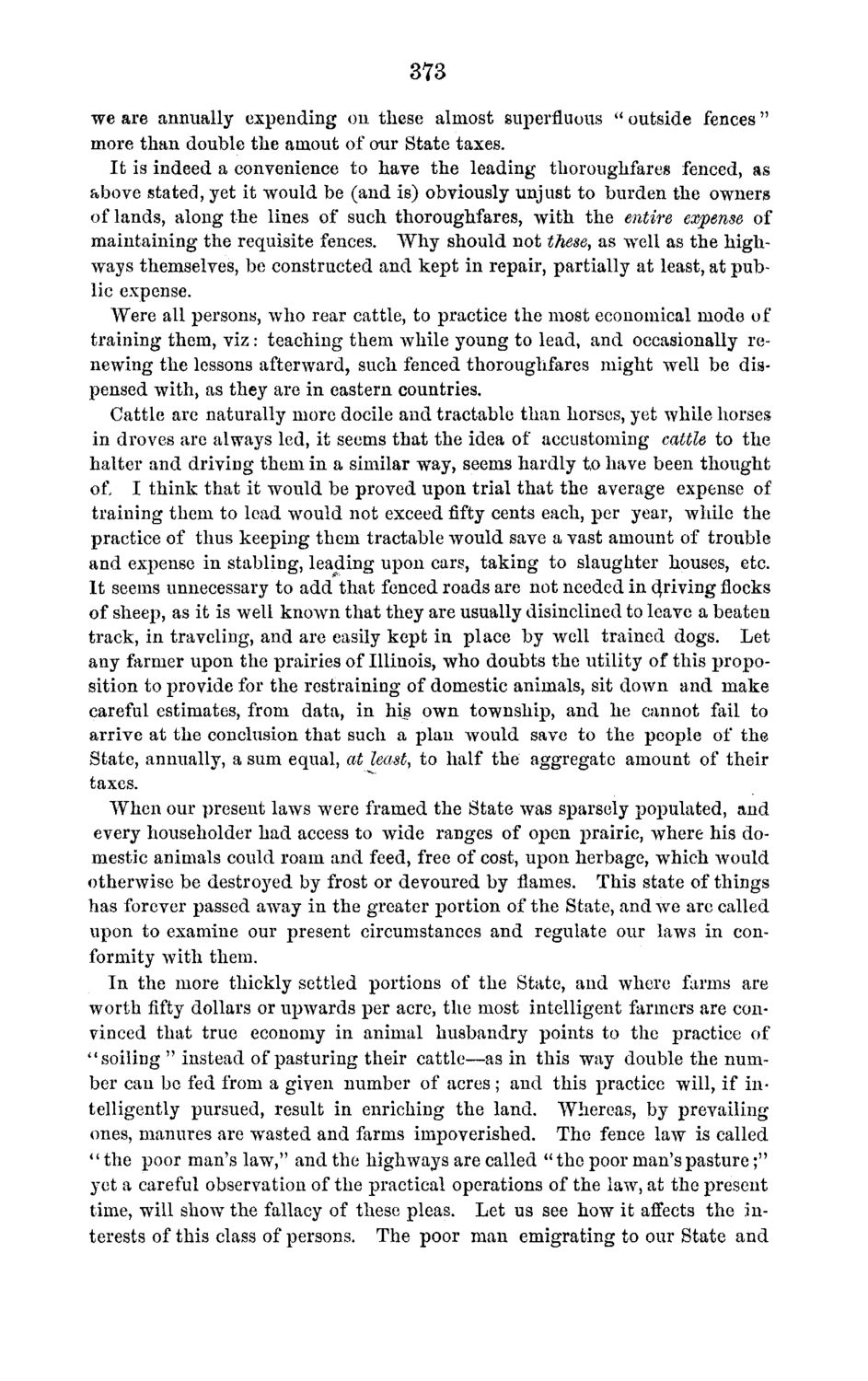| |
| |
Caption: Board of Trustees Minutes - 1870
This is a reduced-resolution page image for fast online browsing.

EXTRACTED TEXT FROM PAGE:
373 we are annually expending on these almost superfluous " outside fences" more than double the amout of our State taxes. It is indeed a convenience to have the leading thoroughfares fenced, as above stated, yet it would be (and is) obviously unjust to burden the owners of lands, along the lines of such thoroughfares, with the entire expense of maintaining the requisite fences. Why should not these, as well as the highways themselves, be constructed and kept in repair, partially at least, at public expense. Were all persons, who rear cattle, to practice the most economical mode of training them, viz: teaching them while young to lead, and occasionally renewing the lessons afterward, such fenced thoroughfares might well be dispensed with, as they are in eastern countries. Cattle are naturally more docile and tractable than horses, yet while horses in droves are always led, it seems that the idea of accustoming .cattle to the halter and driving them in a similar way, seems hardly t,o have been thought of I think that it would be proved upon trial that the average expense of training them to lead would not exceed fifty cents each, per year, while the practice of thus keeping them tractable would save a vast amount of trouble and expense in stabling, leading upon cars, taking to slaughter houses, etc. It seems unnecessary to add that fenced roads are not needed in driving flocks of sheep, as it is well known that they are usually disinclined to leave a beaten track, in traveling, and are easily kept in place by well trained dogs. Let any farmer upon the prairies of Illinois, who doubts the utility of this proposition to provide for the restraining of domestic animals, sit down and make careful estimates, from data, in his own township, and he cannot fail to arrive at the conclusion that such a plan would save to the people of the State, annually, a sum equal, at least, to half the aggregate amount of their taxes. When our present laws were framed the State was sparsely populated, and every householder had access to wide ranges of open prairie, where his domestic animals could roam and feed, free of cost, upon herbage, which would otherwise be destroyed by frost or devoured by flames. This state of things has forever passed away in the greater portion of the State, and we are called upon to examine our present circumstances and regulate our laws in conformity with them. In the more thickly settled portions of the State, and where farms are worth fifty dollars or upwards per acre, the most intelligent farmers are convinced that true economy in animal husbandry points to the practice of "soiling " instead of pasturing their cattle—as in this way double the number can be fed from a given number of acres; and this practice will, if intelligently pursued, result in enriching the land. Whereas, by prevailing ones, manures are wasted and farms impoverished. The fence law is called " the poor man's law," and the highways are called "the poor man's pasture;" yet a careful observation of the practical operations of the law, at the present time, will show the fallacy of these pleas. Let us see how it affects the interests of this class of persons. The poor man emigrating to our State and
| |